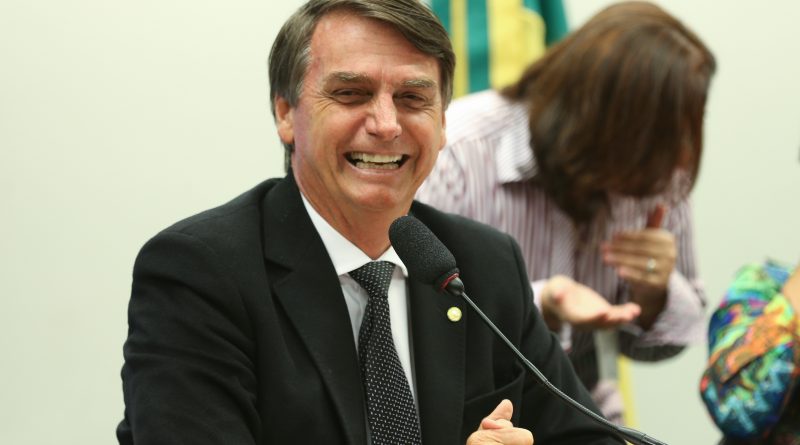FOCUS on Strongmen: Brazil’s Jair Bolorano
Kaitlin Principato
Staff Writer
Fireworks lit up the sky as supporters cried tears of joy and hugged one another after the results of the race were announced, reports the Economist. Brazil, Latin America’s largest nation, experienced a radical shift in democracy as far-right candidate Jair Bolsonaro won the election.
Since Brazil restored democracy 30 years ago, the nation has not seen such a dramatic change. According to The Economist, Bolsonaro clinched 55.2 percent of the vote, beating out his left-winged Worker’s Party opponent, Fernando Haddad.
Bolsonaro is a 63-year-old former military captain who has served for over three decades in Brazil’s congress. Through his campaigning, he has appalled both domestic and international critics with his comments and ideology.
As reported by USA Today, Bolsonaro claimed, “since I was a bachelor at the time, I used the money to have sex with people,” when explaining in a 2018 Brazilian newspaper interview how he spent the official housing allowance money he received as a congressman.
Maria do Rosario has stated that Bolsonaro’s comments in a 2014 interview glorify rape. In an interview, Bolsonaro said Rosario was “not worth raping; she is very ugly.” He also proclaimed, “I wouldn’t rape you because you don’t deserve it.”
According to USA Today, when sharing his views on sexual orientation, Bolsonaro said, “I would prefer my son to die in an accident than be gay.” He added, “I would be incapable of loving a homosexual son. If a gay couple came to live in my building, my property will lose value. If they walk around holding hands, kissing, it will lose value!”
Although Bolsonaro has been highly criticized in the media, his popularity grew as he presented himself as the alternative to rising crimes and two years of political and economic corruption.
As The New York Times reported, Mr. Bolsonaro said, “We have everything we need to become a great nation. Together we will change the destiny of Brazil.”
Brazil is currently facing its deepest recession in its history, political turmoil, 13 million unemployed citizens, and a record high homicide rate of 63,880 people. Bolsonaro has vocalized his agenda in order to tackle these compromising issues.
Bolsonaro will likely stack the Supreme Court with an overwhelming number of judges, jumping from 11 to 21, in order to address an immense amount of issues, says the New York Times.
According to The New York Times, Bolsonaro has also expressed his plan to extend the jurisdiction of police, lower the age of criminal liability, impose stricter sentences on violent crimes, and mitigate gun control laws so that civilians can have ownership.
Matias Spektor, a professor of international relations at the Fundação Getúlio Vargas in São Paulo, Brazil, told The New York Times, “The way he’s run his campaign is very clever. He has managed to align himself with the institutions that Brazilians still believe in: religion, family, and armed forces.”
67 year old Guaracy Pedro Moraes, a Brazilian citizen who voted for Bolsonaro, is most attracted to Bolsonaro’s clean criminal record. Corruption in Brazil, especially in politics, is a prevalent issue that sparks fear among citizens, reports The New York Times.
Moraes stated, “I’m looking forward to see the public safety promise implemented the most.”
Bolsonaro’s win, however, did not come with ease. On September 6th, he was stabbed with a knife in his lower stomach during a campaign event. This incident left him with slashed organs and intestines, adding medical recovery to an otherwise difficult campaign.
Bolsonaro has vowed to protect Brazil from communists, fake news, and thieves, however; some critics say he will virtually accomplish nothing from his campaign rhetoric.
On the contrary, says Foreign Affairs, Brazil’s government system is widely different from the United States. The executive branch is practically unmonitored by the legislators, making it extremely easy to push a certain political agenda, even if it is unpopular.
It is also possible that Bolsonaro will use foreign policy to distract the international community while he implements unpopular policies to tackle Brazil’s economic disaster. Brazil’s fate will ultimately be determined by policy implementation rather than the assumptions of the media, supporters, and critics.


